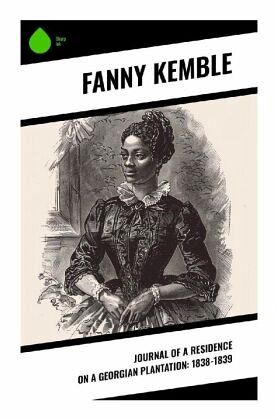
Journal of a Residence on a Georgian Plantation: 1838-1839
Versandkostenfrei!
Versandfertig in 6-10 Tagen
11,60 €
inkl. MwSt.

PAYBACK Punkte
0 °P sammeln!
Fanny Kemble's "Journal of a Residence on a Georgian Plantation: 1838-1839" provides a remarkable and nuanced perspective on antebellum Southern life, as seen through the lens of a British actress. Written during her stay on her husband's plantation, Kemble's work delivers an unflinching examination of the institution of slavery, blending personal reflection with sharp social critique. Her lyrical prose and keen observations highlight the stark contrasts between the genteel facade of plantation life and the harsh realities faced by enslaved individuals, situating her narrative within the broad...
Fanny Kemble's "Journal of a Residence on a Georgian Plantation: 1838-1839" provides a remarkable and nuanced perspective on antebellum Southern life, as seen through the lens of a British actress. Written during her stay on her husband's plantation, Kemble's work delivers an unflinching examination of the institution of slavery, blending personal reflection with sharp social critique. Her lyrical prose and keen observations highlight the stark contrasts between the genteel facade of plantation life and the harsh realities faced by enslaved individuals, situating her narrative within the broader literary context of abolitionist literature that sought to elicit empathy and provoke action against systemic injustice. Kemble's account stands as a critical document that melds personal diary with political consciousness, inviting readers to confront the moral implications of slavery in America. Fanny Kemble (1809-1893) was a prominent actress and writer whose engagement with issues of social justice was shaped by her diverse cultural experiences and her own tumultuous marriage to an American plantation owner. Her unique position as an outsider provides her with both an intimate familiarity with the plantation culture and a critical distance, which informs her incisive commentary on slavery and the complexities of human relationships. This blend of personal and political dimensions reveals her dedication to advocating for the rights of the oppressed, influenced by her abolitionist beliefs. This book is a vital read for those interested in American history, literature, and social justice. Kemble's eloquent and courageous testimony transcends mere memoir; it serves as an important historical document that illuminates the moral struggles of its time. Readers who seek to understand the intricacies of slavery's impact on American society will find Kemble's observations indispensable.












